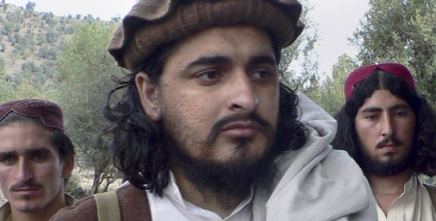Tehrk-i Taliban Pakistan
Dimpool Analysis Team
GIZEM AKTAS
02 April 2012
The Afghan Taliban is a Pashtun movement that emerged in the early 1990s in northern Pakistan. The Taliban came to prominence in Afghanistan in the autumn of 1994. The Taliban’s promise was to restore peace and security and enforce their own austere version of Sharia, or Islamic law, once they came into power.
[wpcol_1half id=”” class=”” style=””]
Tehrik-i-Taliban Pakistan (which translates from Urdu as Student Movement of Pakistan) is an umbrella organization of various Islamist militant groups based along the Afghan border in Pakistan. In December 2007 the existence of the Tehrik-i-Taliban Pakistan was officially announced under the leadership of Baitullah Mehsud, whose Tehrik-i Taliban Pakistan (TTP) is blamed for dozens of suicide bombings and other attacks.

The Afghan Taliban and the Tehrik-i-Taliban Pakistan differ greatly in their history, leadership, and goals. Although they share a common interpretation of Islam and are both predominantly Pashtun, the Afghan Taliban have no affiliation with the Tehrik-i-Taliban Pakistan and adamantly deny any connection to the group whatsoever.
In 2008, Taliban Mullah Mohammed Omar – leader of the Taliban – was not happy with the Pakistani Taliban’s ‘un-Islamic’ actions. It is also said that Mullah Mohammed Omar was worried over the increasing numbers of Pakistani Taliban diverting their attention from Afghanistan toward Pakistan and making it difficult for the Afghan Taliban to continue their resistance against the NATO and ISAF forces in Afghanistan.
In August 2009 Pakistani and U.S. officials claimed that Hakimullah Mehsud was killed in a U.S. missile strike on his father-in-law’s house in the Zangarha area, northeast of Ladha. Additionally, Maulvi Omar was arrested in the Mohmand tribal area while travelling to South Waziristan, near the Afghan border.
After Baitullah Meshud’s death, Maulvi Faqeer, who has been acting as deputy since the TTP was formed in December 2007, in Peshawar was appointed as third-in-command while Maulvi Fazlullah (alias Mullah Radio) was made Secretary-General of the TTP and head of the Swat chapter. However, within a week he was forced to accept the appointment of Hakimullah Mehsud as the new ameer. Maulvi Faqeer was fired by Hakimullah Mehsud on March 4 due to militant insiders saying the second-in-command was seen as growing too close to the Pakistan government and its security agencies.
[/wpcol_1half] [wpcol_1half_end id=”” class=”” style=””]
They said Faqeer’s tone had changed since the government expressed its willingness to hold peace talks last year.

However, this January there was an agreement between the Afghan and Pakistani Taliban to fight under one banner, for one aim. Mullah Nazir’s group in Southern Waziristan, and Hakimullah Mehsoud and Mullah Wali-ur-Rehman’s groups that are members of Pakistani Taliban Movement have agreed on this unified front. The Haqqani Network and Hafiz Gul Bahar’s group also joined the newly-established council to stop fighting their own armed forces in order to concentrate their fight against U.S.-led forces in Afghanistan. They united and promised to stop the suicide attacks, kidnappings, and killing of innocent people in the country, all part of a fight against Pakistani security forces.
When Pakistani Taliban began to show itself, U.S. forces employed the same strategies against Pakistani Talibani that were utilized in Iraq against El-Qaida. Pakistani government agents chose to distribute arms to local powers/tribes in Swat valley, the northern frontier with Afghanistan. However, the local powers in that area are Pashtun, and they are very closely related to the Pakistani Taliban. Pakistani government officials tried to establish support by making a concession. In 2009, Pakistani government declared sharia in the northwest area of Pakistan (Swat valley) as local powers requested, but that was not successful. Pasthun powers continued to support Pakistani Taliban and Pakistani Taliban have an opportunity to spread very quickly through these areas.
According to experts, Pakistani Taliban leaders are ready and willing to negotiate with the Pakistani Government. The announcement of Taliban plans to open an office in Qatar is seen as a positive step in those negotiations. There is also speculation regarding some of the Taliban-linked groups in Pakistan and talks with the government in Islamabad.
The removal of Maulvi Faqeer was made public on March 4. TTP central spokesman Ehsanullah Ehsan gave the BBC absolutely no foundation for Faqeer’s removal, implying that it was Faqeer who ordained peace talks with the Pakistani government without the approval of the TTP.
[/wpcol_1half_end]
You might also want to read[srp srp_number_post_option=’5′ srp_widget_title=’ ‘ srp_thumbnail_wdg_height=’60’ srp_thumbnail_wdg_width=’60’ srp_include_option=’1353′ srp_thumbnail_option=’yes’ srp_content_post_option=’titleonly’] |
